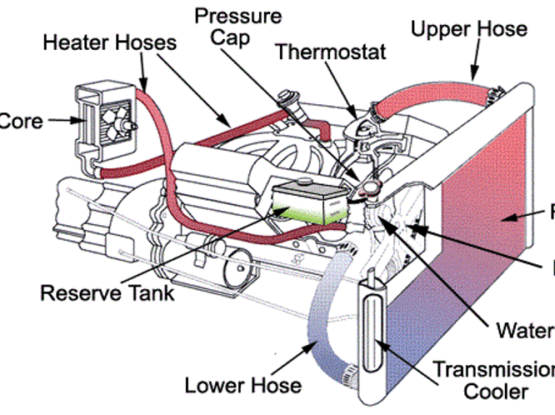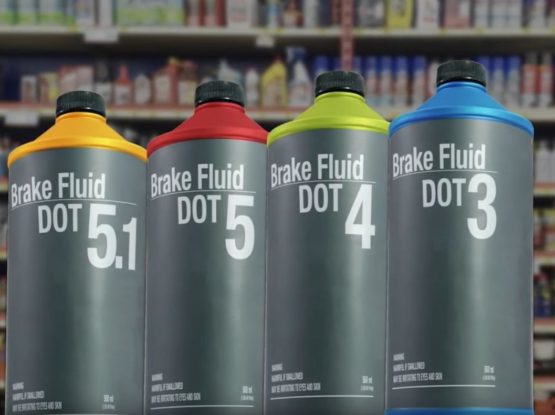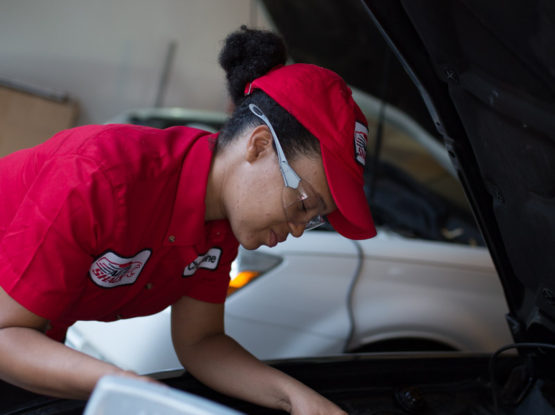WHY YOU SHOULD USE COOLANT IN YOUR ENGINE AND NOT WATER
Picking up where we left off in our last article- Cooling System Basics and Overheating, in this article we discuss why should use coolant and not water.
WHAT WORKS FOR ME?
It is probably one of the most poorly kept secrets that as an engine runs, it generates heat. If this heat is not extracted from the engine, it will quickly become a chunk of useless metal.
Damaging the head gasket and the engine head is just half of the story. An overheated engine will cause elevated temperatures that can lead to a phenomenon called pre-ignition where the air-fuel mixture ignites before it is supposed to.
To carry heat from inside the engine to the atmosphere, the cooling system uses a liquid called coolant. Coolants come in different colors.
Years ago, coolant colors mattered. However, in recent years, in the face of the proliferation of coolant formulations, the color does little to confirm whether a coolant is compatible with your vehicle or not.
Coolant compatibility with your vehicle should be left to the verification of a reputable parts outlet or qualified technician. It is generally bad idea to mix different color coolants because they have the tendency to form a gel that can clog your cooling system. You may also check your coolant requirements from your vehicle manual.

WHY SKIP THE WATER AND GRAB THE COOLANT?
Although some vehicle owners use water in lieu of actual coolant, there are several reasons to use steer clear of doing this.
Firstly, water boils and therefore vaporizes at around 100C (212F) which is the temperature around which the thermostat opens to cool the engine. Therefore, the water, which is now in vapor form, becomes an ineffective cooling agent. The cooling medium needs to remain liquid in order effectively cool the engine.
If you live in a cold region, your biggest concern will be that pure water freezes at 0 degrees. When frozen solid, water cannot flow let alone cool a hot engine.
Frozen water can also cause water pump damage and cracks in the engine block and/or head.
Coolant contains ethylene glycol which has excellent cooling properties over the operating temperature range of a vehicle’s engine. It will neither vaporize nor freeze under conditions which water will.
In addition to allowing corrosion inside the engine and cooling system, water also has poor lubrication properties in comparison to actual coolant.
Finally, as you are aware, an engine contains many dissimilar metals. While some parts of the engine may be made of iron, other parts may contain aluminum or steel. Water has minerals that can kick-start the process of electrolysis and facilitate rusting within an engine in the presence of dissimilar metals.
The next time you think of running water in your engine, we will hope we have given you enough reasons to dump the water and grab the coolant.
If you need coolant, don’t skimp on quality. We have quality coolants in stock. Please click here to check out our online store or call us for assistance.
Connect with us
Facebook: https://www.facebook.com/autoshackghana/
Instagram: https://www.instagram.com/autoshackghana/
YoutTube: https://www.youtube.com/channel/UClBPm4NK4te3KrwJDSgEWjQ/videos
Twitter: https://twitter.com/autoshackghana
This article was written by Kwabena Mensah. If you have any questions for him or would like to connect with him, please do so in the following ways
Linkedin: https://www.linkedin.com/in/kwabena-mensah-38490715/
Facebook: https://www.facebook.com/wofakwabenamensah
Instagram: https://www.instagram.com/kwabena__mensah/




